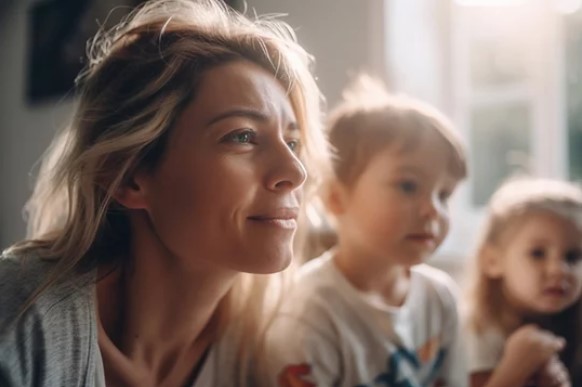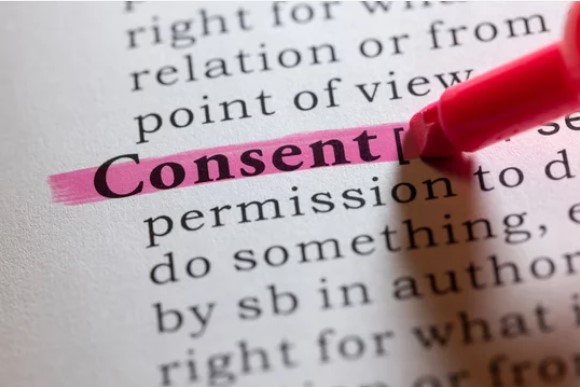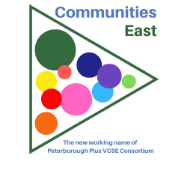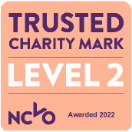We understand the important of positive family relationships and believe in facilitating change and growth, even in the most challenging of circumstances.
Our Family Respect project is part of a larger domestic abuse programme across Peterborough and Cambridgeshire, funded by the Home Office. Our aim is to provide support to families and children in need, with a particular focus on working with children who display abusive behaviours towards their parents, carers, and other people in their family.
We work collaboratively with the Police and Crime Commissioner and Respect UK to ensure that families receive the best possible support.
To find out more about what we do just scroll down the page.


Identifying abusive patterns
Abuse takes many forms, and the signs are often invisible to those on the outside of it.
Some signs of abuse to look out for, include a young person:
- Showing physical or violent behaviour towards others in their home.
- Causing damage to items in their home, or to items which belong to someone else.
- Using coercion and manipulation to control others.
- Using verbal insults or threats to others in their home.
- Stealing or demanding money or property.
If you know a young person between the ages of 10-16 years of age who is displaying any of the above behaviours, our Family Respect could be a well-suited programme for them to get involved with.

How does the Family Respect project work?
Our approach involves working with the young person in a face-to-face setting, where possible, over several weeks. This is so that we can provide tailored support, and work in a neutral, safe, and comfortable environment.
Our aim is to work collaboratively with the young person to find a solution and rebuild the family relationship.
We know that healthy family dynamics are essential for everyone in a household, which is why we provide sustainable and healthy conflict resolution approaches that can help families to achieve long-lasting change.

Consent
To refer a young person to our Family Respect project, you must obtain consent from anyone who has parental responsibility for them, so that we can contact the family. It is mandatory to have gained this consent before submitting a referral form to us.
Where possible, consent must also be obtained from the young person themselves. The consent must identify that the family agree to be contacted by the Family Respect Project. This ensures that everyone involved is aware of the support being provided and gives us permission to work with the family to rebuild relationships and create long-lasting change.
![ymca photography 2021 BCG [A] 083_black](https://ymcatrinitygroup.org.uk/wp-content/uploads/2023/06/ymca-photography-2021-BCG-A-083_black.png)
Q :What issues did you focus on with Respect?
Nate ‘Mostly helped me with seeing things from Mum’s point of view. Helped me to realise that some of the things I said and did were affecting her in a negative way and worse than what I thought.’
‘Some good news. My sister is engaged and she’s going to get married in a couple of years. I want to learn to drive so I can drive Mum and me to the wedding.’
Q : Biggest difference for you and Mum from Nate’s point of view?
Nate ‘Mum’s less stressed and finds it easier to involve me in things, like shopping for meals and deciding my pocket money. She’s been more understanding and patient.’
‘I’ve been a lot less shouty and I have not physically hurt Mum, well, maybe a couple of times but I am trying to keep away from that. I am working on that. I feel proud that I’ve changed and I’m thankful for the help you’ve given me and helping me to see the possible change.’
Q :What would you change about the help you received?
Nate ‘Well, actually, nothing. Because you listened to both sides and you were open to hearing what we were going through. You did not treat me like a child or a 4 year old. You didn’t threaten me. You helped us out with everything. I also think if you had more time with us, stayed a little longer to focus on helping with the anger and the communication it would have been even better.’
Interview with Nate (young person)
Nate’s name has been changed to provide confidentiality.
Q :What was life with Mum like before?
Nate ‘Me and Mum were arguing over every little thing.’
Q :What did you try before?
Nate ‘Lots of other professionals tried to help. I did an anger management course. It helped for about a week or two and then we went back to ‘normal’ again.’
Q :Had you heard about YMCA or the Respect program before?
Nate ‘I’d heard about the YMCA, but I didn’t know it was or had a family projects side.’
Q :What made you agree to work with the Respect project?
Nate ‘It wasn’t like the other generic services. I wasn’t forced to do anything or threatened. I wasn’t afraid of being taken away, or things being taken further when I didn’t want or agree.’
Q :What were your first impressions?
Nate ‘I thought you’d be condescending and annoying, but very quickly realised that you were a normal person and not just ticking professional boxes. (from my previous experiences)
Q : If you were the professional/me what would you do differently?
Nate ‘Really, nothing. I think it was a good job.’
Q : Put the question a different way. Would you recommend that other families facing similar problems work with the Respect team?
Nate ‘Yeah definitely. It’s not nice for strange people coming into your life and flipping things upside down and digging around. It’s not fun, but with the right professional or worker who is actually wanting to help….. (Shrugged)’
‘It shouldn’t feel like an automated service where you cannot be yourself or there are threats of being taken into care, and that sort of thing. It shouldn’t feel like they are ticking boxes. But if people are genuinely trying to help make things better for you then it can be good.’
Q :One big lesson you will take away from the sessions with respect?
Nate ‘Give respect. That means listening and looking at things from different points of view, not just your own. That’s one thing that has really helped my Mum and I find a way forward. Seeing things from her point of view has help me to see things better.’





